Ready to learn more?
Get all the details straight to your inbox!

Smaller class sizes at Luther College means more individualized attention and better connections with your professors, classmates, and academic advisors.
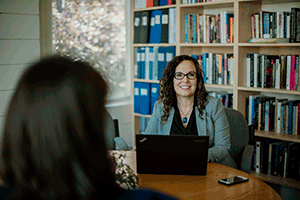
Free enrolment counselling support and invaluable one-on-one academic advising are available for all programs at Luther College.
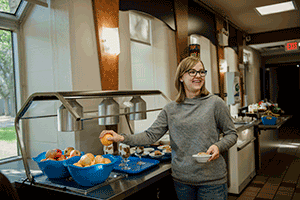
Living in The Student Village at Luther College, our student residence, comes with a choice of healthy, nutritious meal plans. That means no grocery shopping, no meals to cook, and no dirty dishes to worry about. You can focus on your studies and wellness!
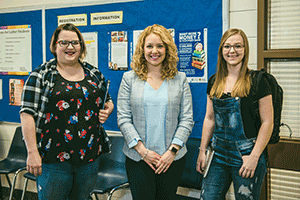
The priority deadline for academic application is March 15. To book a personalized enrolment counselling appointment, contact our Recruitment Office at 1-306-206-2117.

Luther College students are eligible for nearly $100,000 in academic awards – in addition to scholarships and bursaries awarded by the U of R.
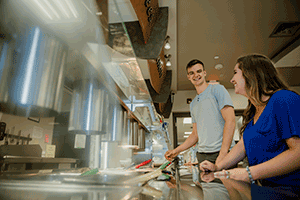
Eating better means studying better. The Luther Cafeteria offers fresh, healthy, nutritious meals seven days a week with a self-serve “all-you-care-to-eat” concept students prefer.
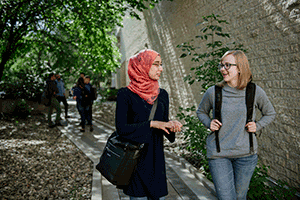
You can book a tour of Luther College, the U of R campus, and our student residence, The Student Village at Luther College, any time throughout the year. Contact our Recruitment Office at 1-306-206-2117.
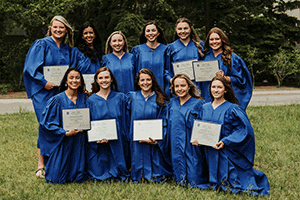
Luther College students are U of R students and receive all the same benefits. Upon graduation you will receive a U of R degree.
Get all the details straight to your inbox!
By Mary Vetter 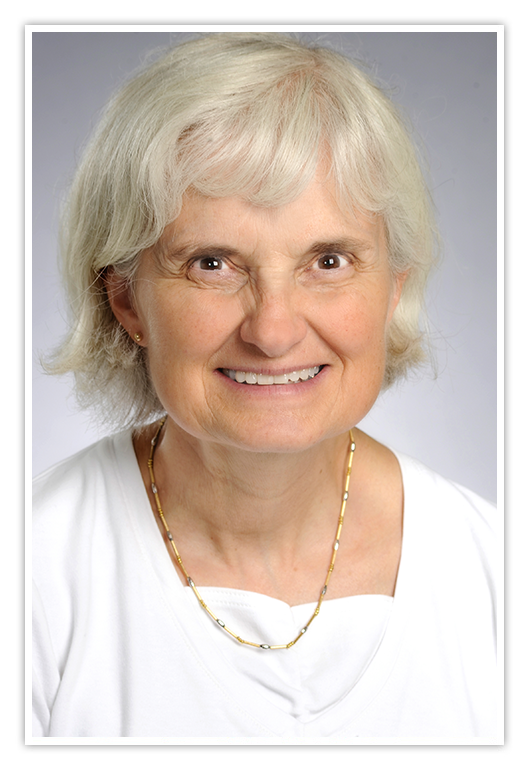
In 1517 Martin Luther circulated his Ninety-Five Theses. In this disputation, Luther argued that a number of practices of the Medieval Church – one of the most powerful institutions of the time – discouraged Christians from true inner spiritual repentance and, by extension, from actions that would address critical social issues of the time, for example, acts of mercy towards the poor. Specifically he focused on the sale of indulgences, the purchase of which could relieve punishment for sins and Jesus’ call to a life of repentance, service, and justice could be ignored.
“Interdisciplinary Studies: Contemporary Issues” (IDS 101) is a class offered each winter semester at Luther College at the University of Regina (LCUR). It is team taught and examines a number of complex contemporary issues that are interdisciplinary in nature and can be directly addressed by the development and application of agency: our ability to pursue and achieve that which we value in a challenging and changing world.
In 2017 the course involved the following LCUR faculty members: Dr. A. Brenda Anderson (Women and Gender Studies, Religious Studies), Dr. F. Volker Greifenhagen (Religious Studies), Dr. Roger Petry (Philosophy), and Dr. Mary Vetter (Biology; course facilitator).
We also made leadership a central topic of the course, using the Social Change Model of Leadership Development. Because 2017 is the 500th anniversary of the Reformation, we used the complex issues being faced in Luther’s time as our first case study, before turning our attention to three topics:
1. Identity and the relationship between Aboriginal and settler peoples in Canada;
2. Welcoming newcomers to Canada (especially Muslim peoples) by understanding and valuing diversity; and
3. Using the lens of sustainability and sustainable development to imagine our collective future in innovative ways (including support of the local foods movement).
The Protestant Reformation and each of the three complex issues examined in this IDS class were analyzed according to the following framework:
The table below summarizes the approach:
|
Critical issue |
Catalyst for change |
New ideas born of hope |
Social Change Model of Leadership |
|
Power of and corruption in the Medieval Church, disconnect between the Church and society (Dr. Yvonne Petry) |
Sale of indulgences and the claim that forgiveness is available by doing good works, including the purchase of indulgences |
Reminder of Jesus’ assurance that forgiveness is available freely to us through faith, and that we exhibit that faith through our good works |
|
|
The relationship between Aboriginal and settler peoples in Canada (Dr. A. Brenda Anderson) |
The legacy of residential schools, the continuing social and economic disparities between Aboriginal and settler peoples |
The Truth and Reconciliation Commission’s Calls to Action, learning opportunities such as the Blanket Exercise, learning and activism opportunities such as Project of Heart |
Engaging Individual Values of Consciousness of Self, Congruence, and Commitment |
|
Binaries and stereotypes that label others different from us (i.e. “mainstream” Canada) and set up barriers between “us” and “them” (Dr. F. Volker Greifenhagen) |
Labeling Muslims as “terrorists” |
Getting to know and engaging with “the other” on a personal level |
Engaging Group Values of Collaboration, Common Purpose, and Controversy with Civility |
|
Aspects of our current lifestyle and economic choices (Dr. Roger Petry, Dr. Mary Vetter) |
Climate change, increasing economic disparity, and negative environmental impacts |
Sustainable development and sustainable livelihoods, e.g. local food movement |
Society/Community Value of Citizenship |
Outside of class time, each student completed 12 hours of Community Service Learning (CSL), by volunteering in a local service agency or project such as Project of Heart. As a reflection on the course and their CSL experience – a kind of journal – each student interviewed someone who faces one of the three course topics in their everyday life, edited the interview, added images, and produced a digital story in the form of a three to five-minute video. One of these videos has been linked to this article, Taya Triffo, “Where do I fit in?”.
At the end of the semester we asked the students to write their own theses that identify complex contemporary issues, catalysts for change, and new ideas born of hope that can be addressed by specific leadership actions. The parallels with Luther’s Ninety-Five Theses are deliberate. As we discussed in class, avoiding personal actions of engagement using agency and leadership is easy to do, just as purchasing indulgences let the people of Luther’s time avoid personal commitment to addressing contemporary issues.
Theses for Today from the IDS 101 Winter 2017 students:
|
Critical issue |
Catalyst for change |
New ideas born of hope and how to implement these through the Social Change Model of Leadership (selections) |
|
Citizens living on Reserves and in the inner city generally have less access to medical and educational services, and they experience a worse quality of life, when compared with those living in the suburbs or wealthier neighbourhoods |
Municipal and Provincial governments that ignore this issue and focus instead, e.g., on a $2 billion bypass that services suburban communities while simultaneously cutting services that benefit less privileged people |
Promote a more equitable division of financial resources at the Provincial and Municipal Levels through
|
|
Lack of resources for newcomers to Regina |
Existence of the Regina Open Door Society and the work they do |
More support for the Regina Open Door Society, including volunteers, through
|
|
Garbage in public spaces around the City of Regina |
Visibility of the garbage promotes an attitude of carelessness and resignation |
Facilitate individual and municipal action through
|
|
Religious isolationism that promotes misunderstandings and stereotypes |
Our own or others’ stereotypes towards those practicing a religion other than ours/mine or practicing a religion at all |
Education in the form of personal engagement to learn about each other through
|
|
The size of Regina’s ecological footprint |
The number of personal cars on the road and the lack of much public transit |
Ban cars carrying one person on weekend evenings through
|
|
Prejudice in Regina |
Ignorance of diversity among many Regina citizens |
Buy-in to and participation in effective educational programs, through
|
In summary, IDS 101 in Winter 2017 brought Luther’s Ninety-Five Theses into today’s context, showing us how complex, immense, seemingly insolvable issues through time have been challenged by new ideas born of hope. As has been the case throughout human history, each of us bears some personal responsibility for the social, economic, and environmental problems of our day. This responsibility can easily become overwhelming and produce resentment, helplessness, or despair. Specifically, we took small steps and developed leadership skills to implement change:
Thank you to the students and participating professors who made this year’s journey exciting, wondrous, and hopeful.